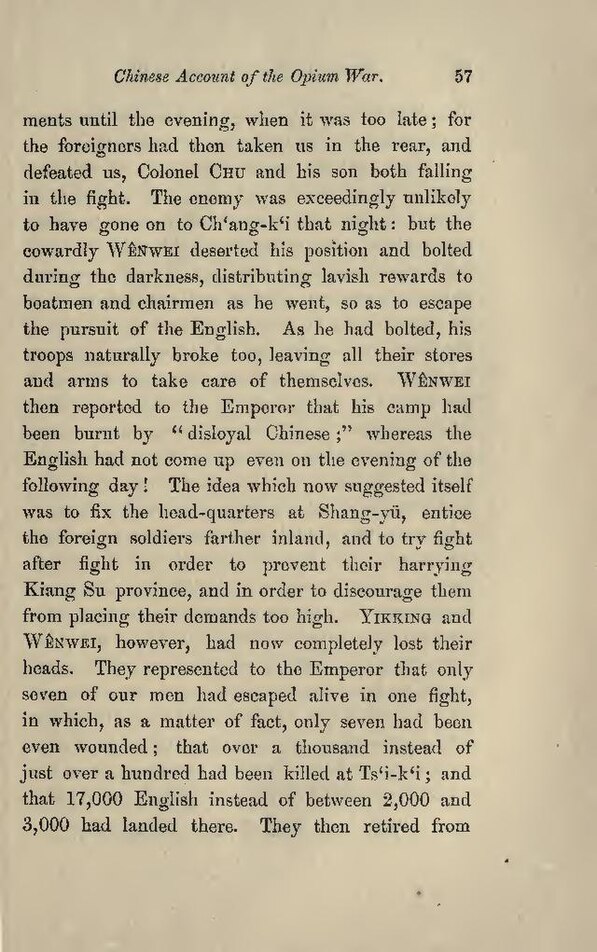ments until the evening, when it was too late; for the foreigners had then taken us in the rear, and defeated us, Colonel CHU and his son both falling in the fight. The enemy was exceedingly unlikely to have gone on to Ch'ang-k'i that night: but the cowardly WÊNWEI deserted his position and bolted during the darkness, distributing lavish rewards to boatmen and chairmen as he went, so as to escape the pursuit of the English. As he had bolted, his troops naturally broke too, leaving all their stores and arms to take care of themselves. WÊNWEI then reported to the Emperor that his camp had been burnt by "disloyal Chinese;" whereas the English had not come up even on the evening of the following day! The idea which now suggested itself was to fix the head-quarters at Shang-yü, entice the foreign soldiers farther inland, and to try fight after fight in order to prevent their harrying Kiang Su province, and in order to discourage them from placing their demands too high. YIKKING and WÊNWEI, however, had now completely lost their heads. They represented to the Emperor that only seven of our men had escaped alive in one fight, in which, as a matter of fact, only seven had been even wounded; that over a thousand instead of just over a hundred had been killed at Ts'i-k'i; and that 17,000 English instead of between 2,000 and 3,000 had landed there. They then retired from
Page:Chinese account of the Opium war (IA chineseaccountof00parkrich).pdf/73
This page needs to be proofread.
